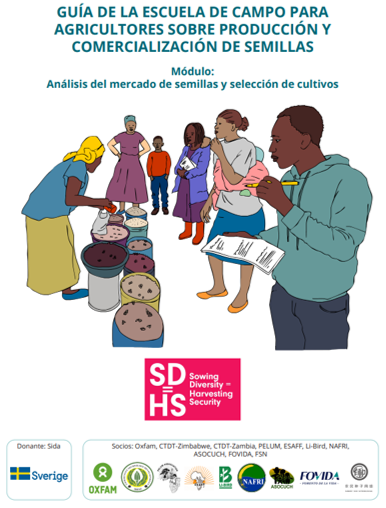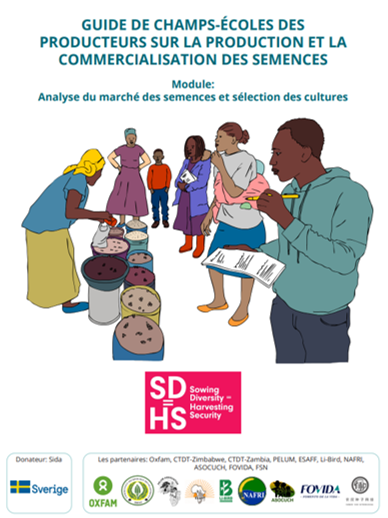Aakash Koirala and Niranjan Pudasaini, Senior Program Officers at LI-BIRD
Community Seed Bank in Nepal
A Community Seed Bank (CSB) is a local institution collectively managed by a group of farmers for the maintenance, conservation and exchange of locally available seeds (Shrestha, 2019 , Vernooy et al., 2020). Generally, CSB is considered as a comprehensive approach for conservation and promotion of agro-biodiversity in the place of origin. In some cases, a CSB is established after a loss of local seed supplies due to famine, drought, or flood. Its name, forms, and functions vary widely around the world. In general, CSB is recognized as a participatory approach or a system for promoting on-farm conservation and sustainable management of local agro-biodiversity by empowering local community.
As an integral part, CSBs are awareness raising local entities providing documentation and sharing of traditional knowledge associated with local crop diversity. In special cases, CSB can be a resource center for promotion of ecological agriculture, participatory crop improvement and agro-biodiversity based income generating activities. In some locations, CSB plays a role in capacity building of associated members through building network and social cohesion for improved access to public resources, policy advocacy and securing farmer’s right on local development plans.
Local Initiatives for Biodiversity, Research and Development (LI-BIRD) has been promoting the CSB approach since 1995 and has been directly involved in establishing 23 CSBs across the country. The Sowing Diversity = Harvesting Security project (SD=HS) works with CSBs focusing specially on institutional development and seed enterprise development.
Despite the existence of CSBs for over two decades in Nepal, there is a lack of common understanding among stakeholders on the fundamentals of the CSB approach like; the working scope and modalities of the CBS, minimum physical and technical resource requirements, legal and governance-related norms, etc. Several organizations implement CSB as a project activity within a short timeframe without adequate investment, long-term vision, and sustainability mechanism. Depending on the supporting organization or promoter, CSBs differ in their working scope, activities, and targets.
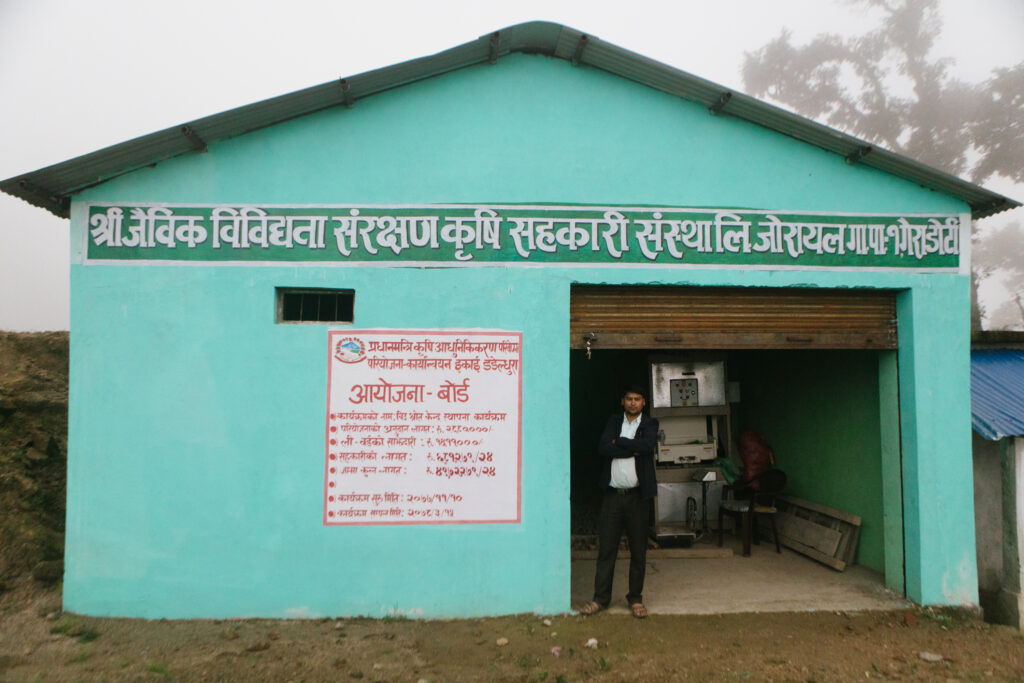
One of the major bottlenecks of sustaining CSBs in Nepal is a lack of proper institutional development, inefficient resource mobilization strategy, and inadequate ownership from the local government. As second-generation issues in CSB management, maintaining certain standards or consistency in core activities and scope of work has been a key issue. Uniformity implementation modality in CSB, core activities, and resource arrangement has been major to channelize available resources to the right candidate. Though the Government of Nepal has developed brief CSB Guidelines in 2008, the implementation and practicality of the guidelines remained very limited. Realizing the need for a standard guideline, the Center for Crop Development and Agrobiodiversity Conservation (CCDABC) – Central level governmental organization mandated for conservation and promotion of agro-biodiversity in Nepal – and LI-BIRD developed a guideline incorporating their experiences and knowledge.
Importance of CSB Guidelines
The lack of uniformity on CSB guidelines raises questions around sustainability, and whether institutions functioning under the name of CSB are real and fit for the purpose. Efforts to mainstream CSBs started in 2012 and were successful in drawing a common understanding, recognizing a CSB as a local institution that conserves and promotes local agro-biodiversity and strengthens the local seed system. A second national workshop on CSB, held in 2018, also highlighted the need for standard guidelines to regulate CSBs across the country.
Farmer’s Level Validation Workshop
To address these practical issues and needs, a small technical team of LI-BIRD and CCDABC jointly drafted a guideline/manual for CSB establishment and management drawing from expertise and on-ground experiences of community seed baking in Nepal. The draft document comprises the essence of in-situ conservation and promotion of local agro-biodiversity complemented with practical learnings from successful and unsuccessful CSBs. To finalize these guidelines, a series of technical reviews took place.
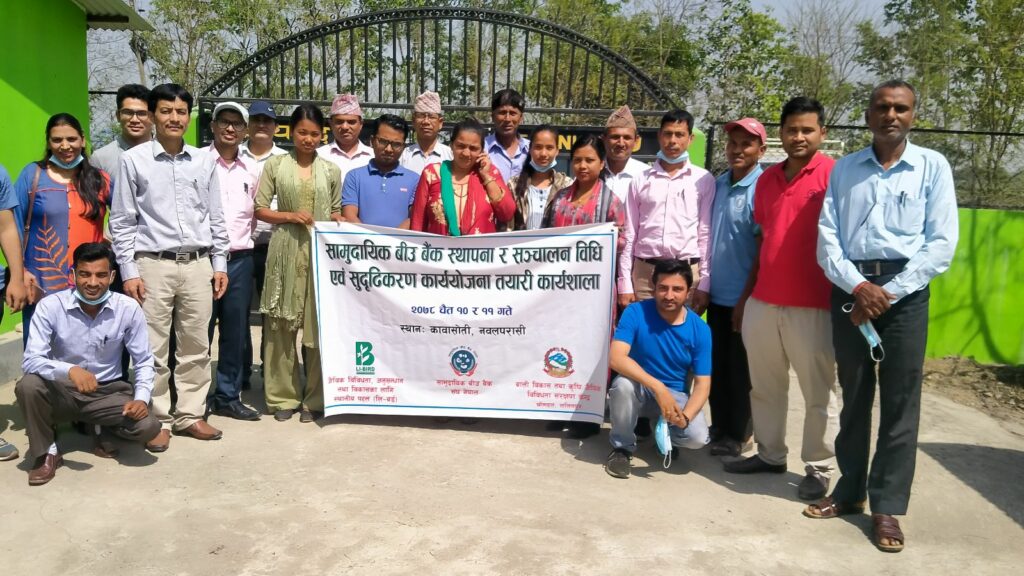
The first consultation workshop was at the farmer’s level, it occurred on 24-25 March 2022 under the SD=HS project at Agyauli, Nawalpur. The workshop was technically supported by the National Gene Bank and CCDABC representing the government of Nepal who are expected to formally roll this process out in the future. A total of 31 participants representing 12 CSBs from 11 districts along with representatives from Nepal Agricultural Research Council (NARC), National Gene Bank, CCDABC, LI-BIRD, and Oxfam Nepal participated in the workshop. The workshop was intended to share the progress of CSB guidelines drafting and enrich it with farmers’ understanding and expectations. The platform was also used as a awareness raising event on national level laws and policies related to agrobiodiversity conservation and use, good practices, and farmer’s rights on local seeds.
Workshop outcomes
A draft guideline was thoroughly shared with participating farmers for them to provide relevant comments, inputs, and suggestions to refine the draft document. Participants shared their views on legal provisions for CSB establishments, and fulfilling basic technical and managerial requirements, this is often connected to farmer’s organizations intended to establish and run the CSB. Participants discussed common agreement on CSB’s objectives, basic technical and physical requirements, and sustainability mechanism in terms of financial resource management and institutional governance. These discussions are well documented and will be incorporated in the guideline.
The forum also agreed on the basic mandatory provisions for the establishment and operation of a community seed bank. Such as, fulfilling requirements concerning the legality of CSB operating farmer’s institution, minimum required physical tools and materials, infrastructure and technical capabilities. The workshop participant suggested to organize another round of sharing and validation meeting with relevant field experts to make the document technically as well as legally robust. CCDABC agreed to take the lead to refine and endorse it as an authorized document with support from the national Gene Bank, LI-BIRD and Community Seed Bank Association.
Furthermore, current issues, challenges, and requirements for sustainable management of CSB were discussed with participating CSB managers. CCDABC, National Gene Bank and LI-BIRD received feedback and expectations from farmers and other participants, and will be incorporating these in the upcoming year. CCDABC will endorse the CSB Guideline or Manual as a formal guiding document for CSB program implementation which will guide newly established community seed banks in Nepal.
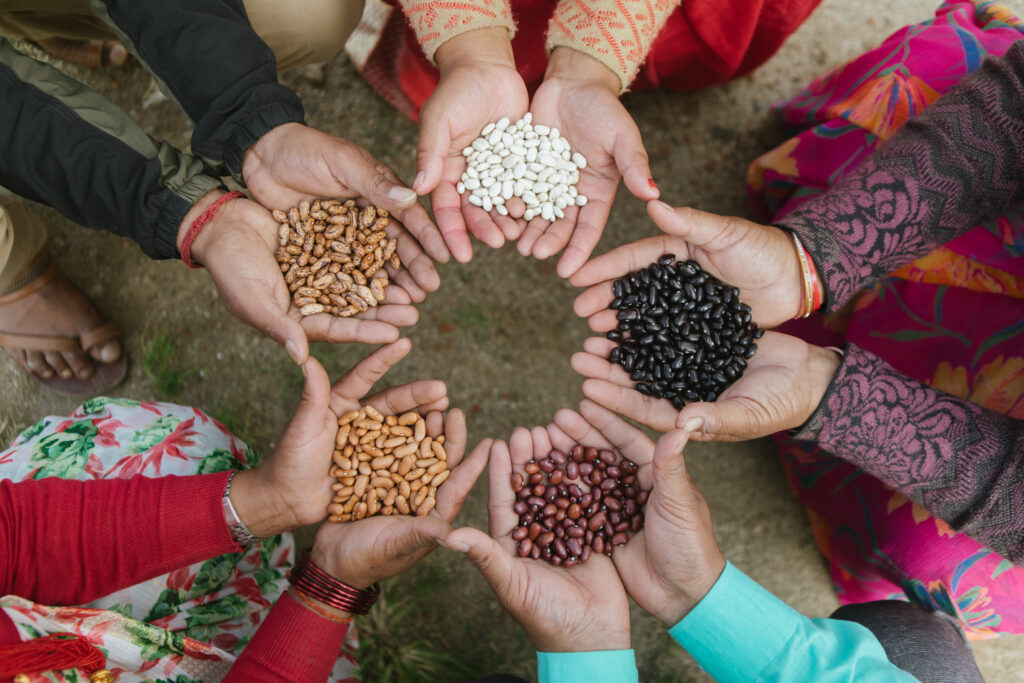
Aakash Koirala and Niranjan Pudasaini are both Senior Program Officers at LI-BIRD






